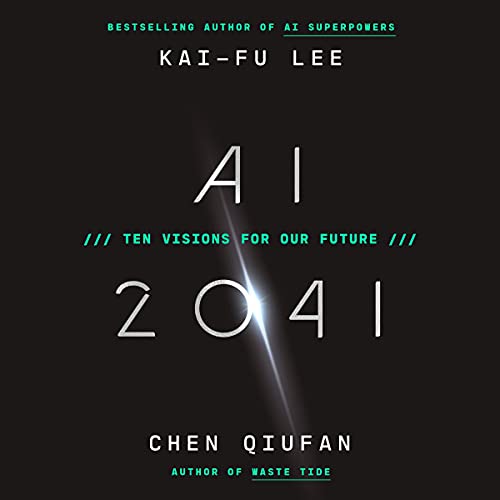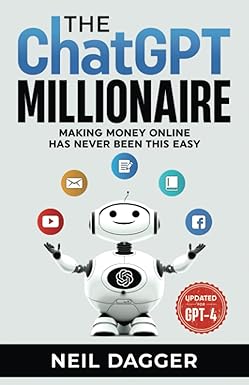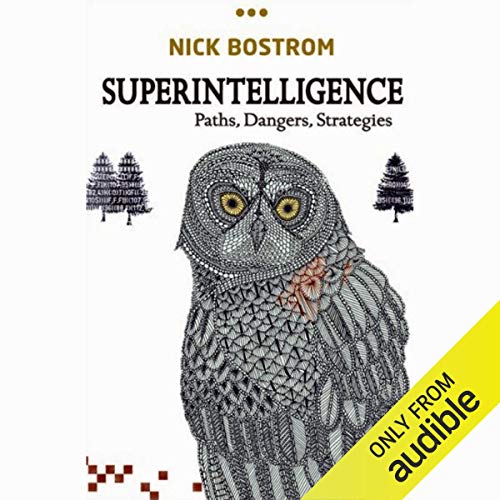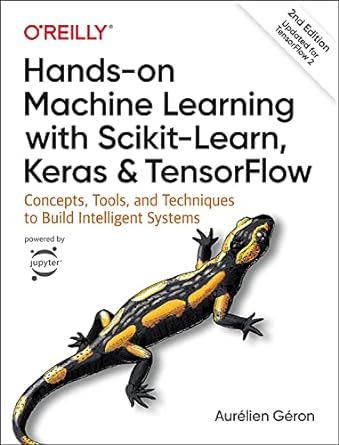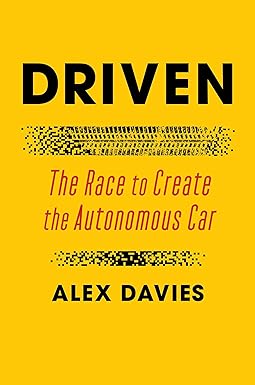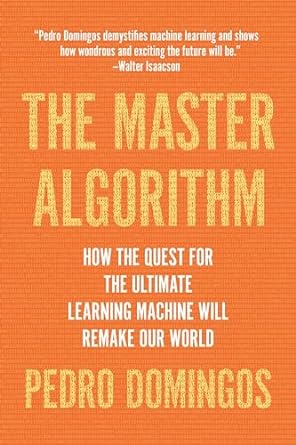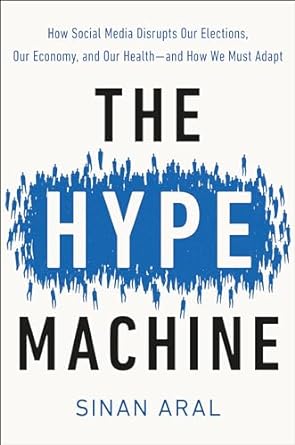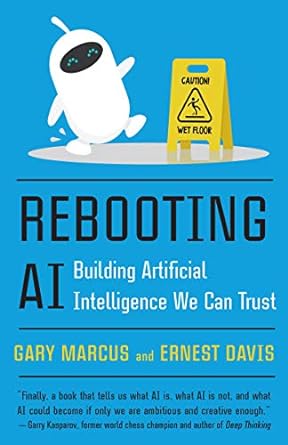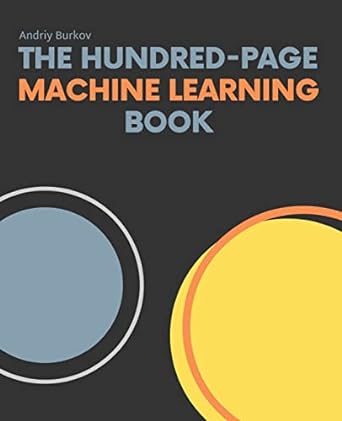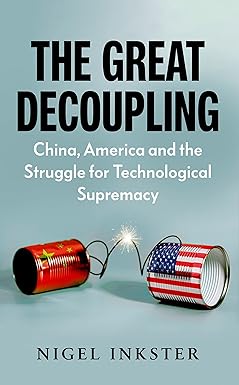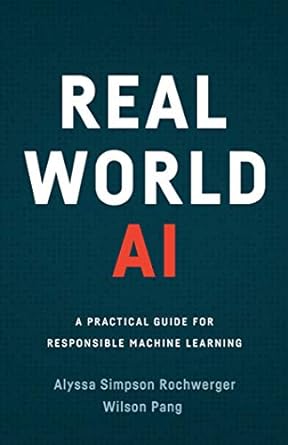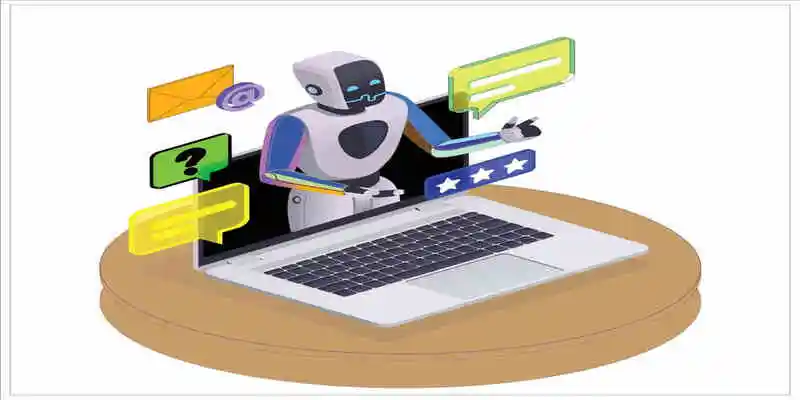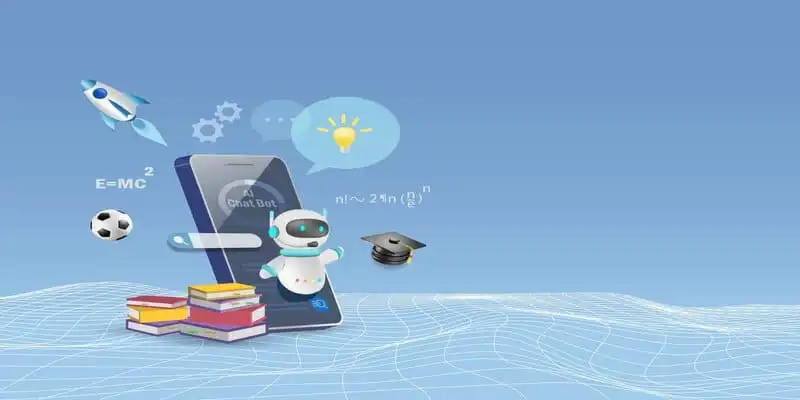Best Books About Artificial Intelligence
The best books on artificial intelligence are useful for people interested in working as AI engineers or specialists. The following list is based on AI specialists' preferences and ratings to assist a layperson with limited AI knowledge. Let's improve AI expertise and knowledge with insights.

AI impresses the world in almost every industry and puts people to introduce artificial intelligence in their existing operations for a variety of applications. Some of its exciting fields include automation, robotics, computer vision, machine learning, reinforced, and deep learning which is penetrating every real-world field. It corrects grammar error from content, suggests next video streaming, and personalize the music playlist.
According to Statista, in China, people read books more regularly in 2017. An internet survey was conducted among 17 countries that showed that 36% of them love to read books regularly while 34% read once a week. In contrast, only 13% of people read books regularly in South Korea. It means reading behavior varies from region to region and is based on the interest and knowledge that people expect from reading books. The books on artificial intelligence are helpful for those seeking career opportunities as AI engineers and AI experts. The list shared below is based on the preference of AI experts and their ratings to help a layperson with not enough knowledge of AI. Get better insights and knowledge about AI, start reading this list of the best books about artificial intelligence.
Best Books About Artificial Intelligence
1. AI 2041: Ten Visions for Our Future
Authors: Kai-Fu Lee and Chen Qiufan
Click to check price and buy
How can AI change the world in the coming 20 years? Yan LeCun, the chief AI scientist at Facebook said:
“This inspired collaboration between a pioneering technologist and a visionary writer of science fiction offers bold and urgent insights.”
Artificial intelligence is the future of the 21st century as it will change the aspect of routine tasks within two decades. It will generate high revenues, change healthcare departments, and education delivering techniques via joining human intelligence with machines. Plus, it has the potential of creating new ways to communicate and entertain the audience. Meanwhile, autonomous weapons and smart technology are a threat to life and privacy. People should know its beneficial and dangerous sides to think about it before implementing it in their individual lives or businesses.
The authors joined their thoughts and summarized them in the book and shared ten stories. Highlights areas:
- San Francisco: AI broadens the "job reallocation" industry with deep learning.
- Tokyo: Mixed reality and virtual reality upswept a music fan in the celebrity.
- Mumbai: A girl opposes when artificial intelligence gets in the way of romance with big data.
- Munich: A fake scientist works on computer vision, quantum computing, and other related technologies in a revenge sense that is risky for the world.
- Seoul: Natural language processing strategies with virtual partners help orphaned twins unique connecting ways.
2. The ChatGPT Millionaire: Making Money Online has never been this EASY
Author: Neil Dagger
Click to check price and buy
The book "The ChatGPT Millionaire: Making Money Online has never been this EASY" is a thorough and up-to-date guide that shows readers how to earn money effortlessly with ChatGPT. The step-by-step guide in the book reveals the keys of developing passive income streams, researching, creating, and advertising compelling content in seconds. You can also please customers by completing their assignments quickly and with excellent quality, and reclaiming time to focus on what truly matters. It is a must-read for anybody looking to earn money using ChatGPT. The book also focuses on skill development, highlighting the significance of learning and polishing certain abilities that are in demand in the online marketplace.
3. Superintelligence: Paths, Dangers, Strategies
Author: Nick Bostrom
Click to check price and buy
What would happen when machines with general intelligence pass humans? Will intelligent agents be safe or dangerous for humans? Superintelligence raised the questions. The author focused on better understanding the concept of artificial intelligence and its future impacts on humanity. The human brain can perform efficient tasks that animals cannot do and that's why humans stand out among other species. The machines surpassing human brain capabilities results in the evolution of superintelligence that could be more powerful than humans. The concept can be better understood by the example where an animal's fate can be decided by humans and what if the fate of us is controlled by AI? It would be beyond control.
But one thing in our control is it is in our hands to make the first move. Another question, is it possible to ping AI and monitor the conditions to make intelligent explosions under control? And what would be the way of controlling it?
This book shares the concepts of several complex intellectual traits and comes to the point of how humans think and how machines can mimic for future intelligent life. His work completely explains the conceptualization of basic tasks of the day with artificial technology.
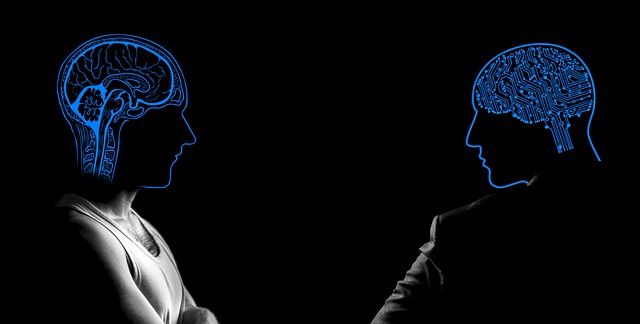
4. Hands-On Machine Learning with Scikit-Learn, Keras, and TensorFlow: Concepts, Tools, and Techniques to Build Intelligent System
Author: Aurelien Geron
Click to check price and buy
Deep learning has revolutionized the department of machine learning with a series of recent breakthroughs. With advanced knowledge, every engineer who doesn't have enough knowledge about this technology can implement it in the real world successfully. They can use several related tools to train their system on available data by reading this book.
Aurelien Geron took the help of a strong example with the least theory and two Python frameworks (TensorFlow and Scikit-Learn) to share the best way of developing artificially intelligent systems’ tools. He started from easier linear regression leading to DNL (deep neural networks) to provide the readers with several magic techniques.
The reader must have programming background experience; solve the exercises and apply them in real applications to check their authenticity and their understanding of them.
- Machine learning landscape: Keenly observe and understand the ML landscape including neural networks.
- Scikit-Learn: Use it to track a supposed ML model from end-to-end.
- Training models: He shared several training models including recurrent nets, convolutional nets, and deep reinforced learning.
- Scale-up Understanding: With the mentioned techniques, the reader can enhance their understanding of intelligent systems and deep neural nets.
5. Driven: The Race to Create the Autonomous Car
Author: Alex Davies
Click to check price and buy
According to the “great man theory,” heroes made history and reshaped the future with their brilliance. Alex Davies introduced his new book that contradicts this fact based on outdated logic. He digs deep into the theory of autonomous vehicles in his book to find those who strived hard to give life to the technology. And he revealed, "teamwork makes the dream work.”
Robot cars reshaped modern work, and it is forecasted that autonomous vehicles will be a $7 trillion business by 2050. Several multibillion-dollar industries including General Motors, Alphabet, Tesla, and Ford are on their work to excite people with future advancement. After some years in 2001, DARPA started a literal robot race near the Mojave Desert. The engineers were the same as working for the world's largest autonomous vehicle companies today. Many of those work to earn high revenues. But Davies met one of the roboticists who says:
“I sought something that would dent the world, that I could do with my own hands, that would happen in my time.”
He also shared tips regarding robot racing in the desert; one must consider the native tortoises. Otherwise, they will pee on them if they try to move them from the place. This book well describes the features of the autonomous vehicle and allow the reader to learn about developing business supporting robots
6. The Master Algorithm: How the Quest for the Ultimate Learning Machine Will Remake Our World
Author: Perdro Domingos
Click to check price and buy
The book shares a wider experience on deep learning, the hot topic of the day. Keep in mind the author describes different tribes and the reader must understand all of them. All tribes are interlinked, and the solutions are based on their combinations.
What DeepMind do with AlphaGo? It uses two tribes or even three in some conversation. Hence, it is a good practice to get knowledge of all of them. This book is an excellent source for technical people who just entered the AI field and have no background knowledge of it or people doing business. The concepts are not so technical and a little bit dry but open its reader’s eyes by giving the best understanding of the problem. The author describes the tribes as they mix seldom, but these should be more mixed. The idea of the master algorithm is not a separate idea and a collective fact based on mixing and matching tribes. Overall, it is a significant initial outline.
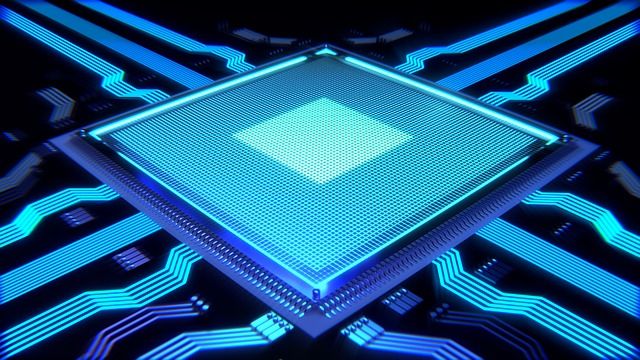
7. The Hype Machine: How Social Media Disrupts Our Elections, Our Economy, and Our Health and How We Must Adapt?
Author: Sinan Aral
Click to check price and buy
The drawbacks of social media influence on society and challenges and prioritizing them in sequence. The business models are based on the advertisement, the content division based on algorithm amplification, political participation, and election impediments. In the book, The Hype Machine, Sinan Aral tried to explain all of them and successfully did so. He is MIT's initiative director on the Digital economy. How does social media work? He un-layers the inner working phenomenon and the results resemble a textbook; engaging content showing how Facebook and Twitter are reading our brains and impact us together with society.
Moreover, according to him, social media is also beneficial in real societies and worried about its harms on real life and how the good stuff can compete for the pitfalls. His work is something other than already written in the literature. He wrapped the discussion of the advantages of advertising on social media as "it is a wildly and brazenly oversold." The reader can see how confident he is in his saying without discussing an agenda from the surface. The book weakens when it describes policy descriptions; Aral's contemptuous of the tech fake practices fails the elegance of his practical analysis. He said, “I’m a scientist, entrepreneur, and investor- in that order.” Saying it can be true that the concept of the book “The Hype Machine” is not his thinking but his knowledge.
8. Rebooting AI: Building Artificial Intelligence We Can Trust
Authors: Gary Marcus and Ernest Davis
Click to check price and buy
This book revolves around the fact of deep learning and describes the principles of artificial intelligence. NeurIPS is the leading connectionist conference that took place recently. Several usual machine learning camps and connectionism (neural networks) are based on the same theory. NeurIPS got so popular last year and launched a ticket lottery which sold in a matter of minutes. This academic conference was similar to a rock concert as the site even went down.
The book considers the intelligent facts and relevant goals and how AI is useful for humans and the relation of deep learning with it. The authors focus on deep learning ignoring other facts which may bring fruitful conclusions if discussed in the book. Their major struggle is to share the broader view of artificial intelligence, reminding the classical AI views and disciplines. Moreover, they emphasized forty to fifty years old work at several places that gave rise to the advancement in artificial intelligent technology. Overall, it is the best book for those who are eager of learning and understand deep learning.
9. The Hundred-Page Machine Learning Book
Author: Andriy Burkov
Click to check price and buy
The hundred-page machine learning is well written for field experts. it deals with the basic concepts of machine learning that an expert must be aware of majorly. This book not deeply describes the mathematical or technical portion but helps the reader with the theoretical portion. According to AI experts, every practitioner should have this on their study shelves. Plus, it is equally beneficial for those who are interested to know about the potential of machine learning and its various applications. It is highly summarized as hundred pages on machine learning and incredibly covered it at this pace.
One can consider riding on the introductory or intermediate machine learning concepts. In short, it is the best solution for practitioners acquiring to know the nitty-gritty of this broad department with the least struggle. All chapters are equally long and summarize the whole topics discussed in machine learning and the techniques behind it. Its shares simple mathematics concepts skipping the complex equation derivations. It is declared as one of the best books about artificial intelligence by technology experts.
10. The Great Decoupling: China, America, and the Struggle for Technological Supremacy
Author: Nigel Inkster
Click to check price and buy
It might be helpful to consider why the US and China are stuck to artificial intelligence, 5G, and semiconductors and one of them lost its technological edge. China invented gunpowder, the compass, and paper by the end of the 18thcentury, but it came to the industry and was considered as a revolution late. The achievement was kept as a secret from the world. In the book, The Great Decoupling, the author described the period when China suffered as the “hundred years of humiliation.” It becomes an ignition point in the growth of China's tech achievements today.
China’s expert researchers and scientists consider opportunities as once in the dynasty to retake the technological lead in the world and regain its central success position. The author is a former diplomat and British IO (intelligent officer) who shared clever thoughts regarding Chinese policymakers’ thinking, their understanding of recent technological forces, and fascinating information of the country’s next moves.
The quick popularity of China’s success course gives rise to major issues for Western democracies. However, Inkster warns that dissociating it from Western technology, finance, and supply chains will result in a major crisis. He suggested that separating all would not only bring high revenues but also slow down technological progress. In short, it is one of the best books about artificial intelligence for anyone passionate about reading China something beyond outdated. He shares his thoughts about history and the chances where it will take us in the future.
11. Real World AI: A Practical Guide for Responsible Machine Learning
Authors: Alyssa Simpson and Wilson Pang
Click to check price and buy
Artificial intelligence work with full elegance and brilliance helping businesses either big or startups to make high revenues. It not only supports selling businesses but also buyers or in other senses, the customers purchasing products or services. Unfortunately, if it fails, it ends the whole cycle of sales and hence, high revenues. These issues are not so common as model testing is always done before its practical applicability. This Practical Guide for Responsible Machine Learning is the first effective human approach that got three times higher success rate in the market compared to the industry average.
In many best books about artificial intelligence, this stands out in sharing multiple AI stories from global giants and startups. The authors, Alyssa Simpson Rochwerger and Wilson Pang shared their personal views about the engineers who worked on a global scale for companies in deploying AI and these businesses are constantly impacting the daily routine life of others. This Real World AI book explains artificial intelligence in plain language that leads the reader to the approaches where they feel confident to apply for both (customers and businesses).
